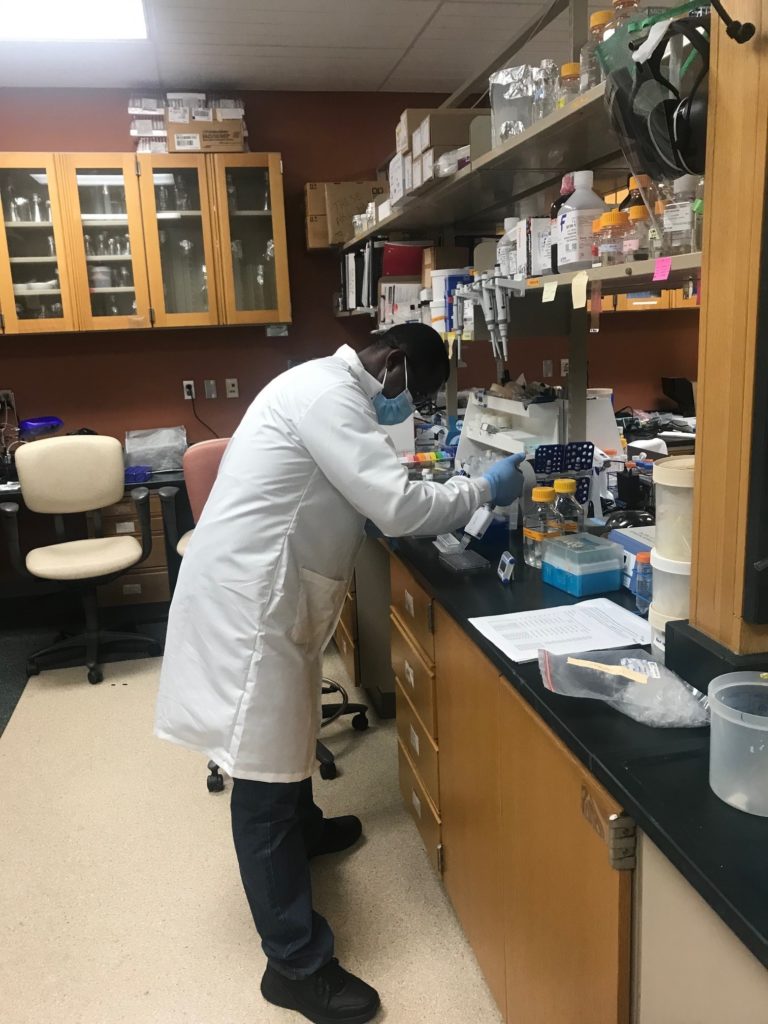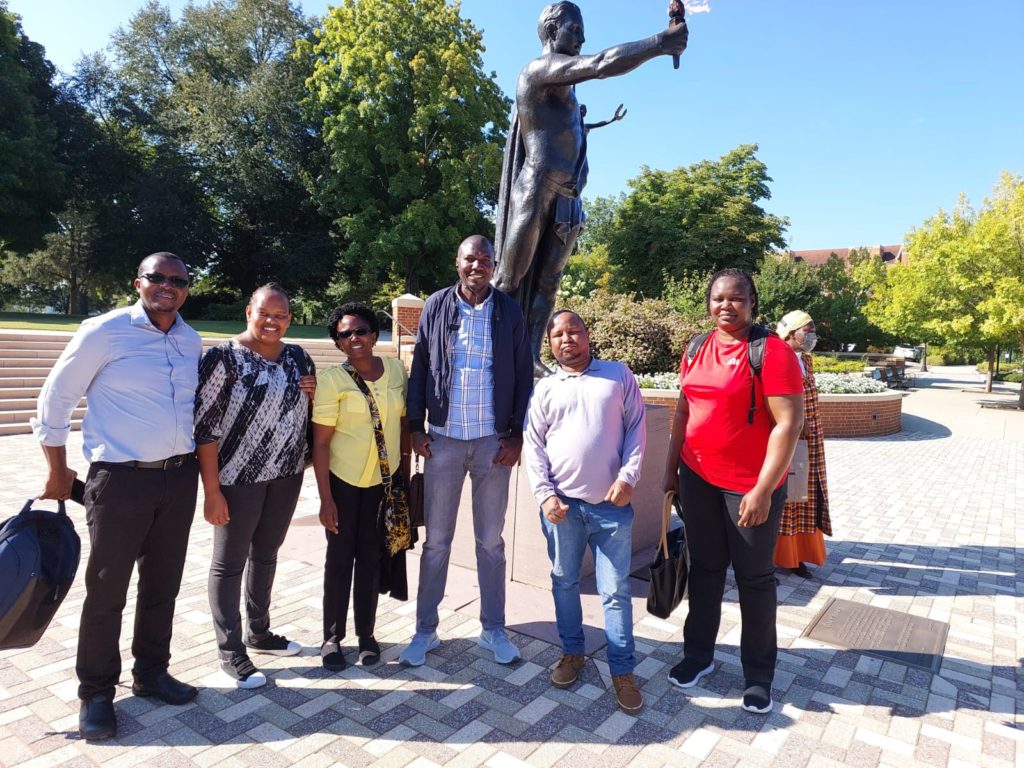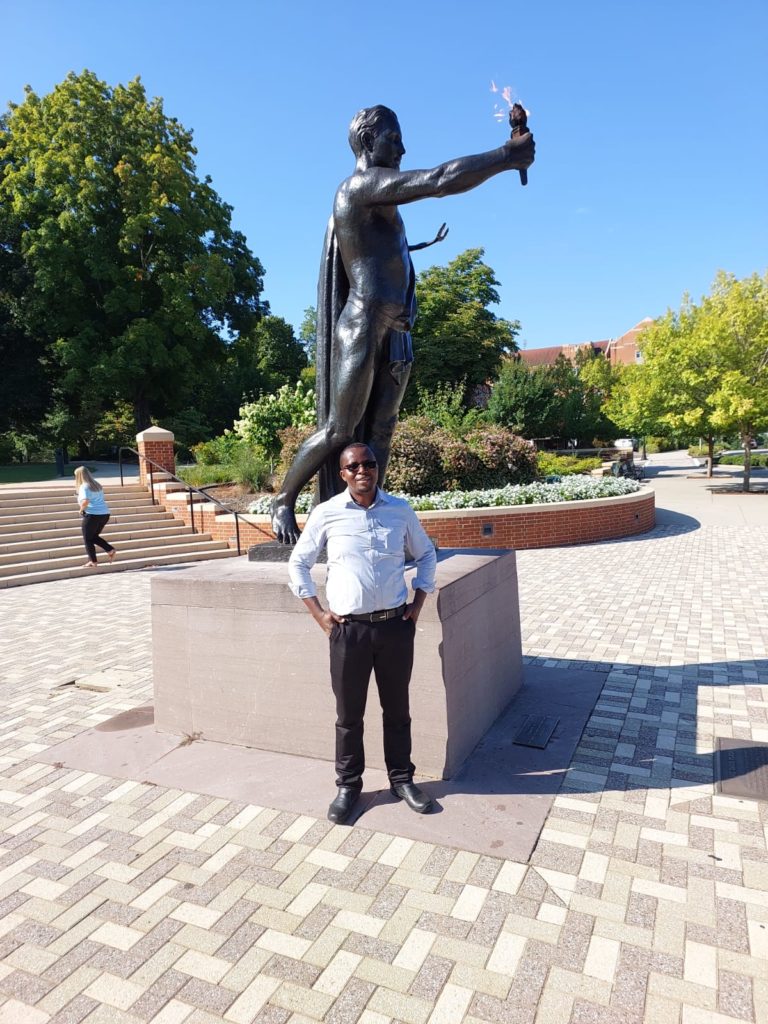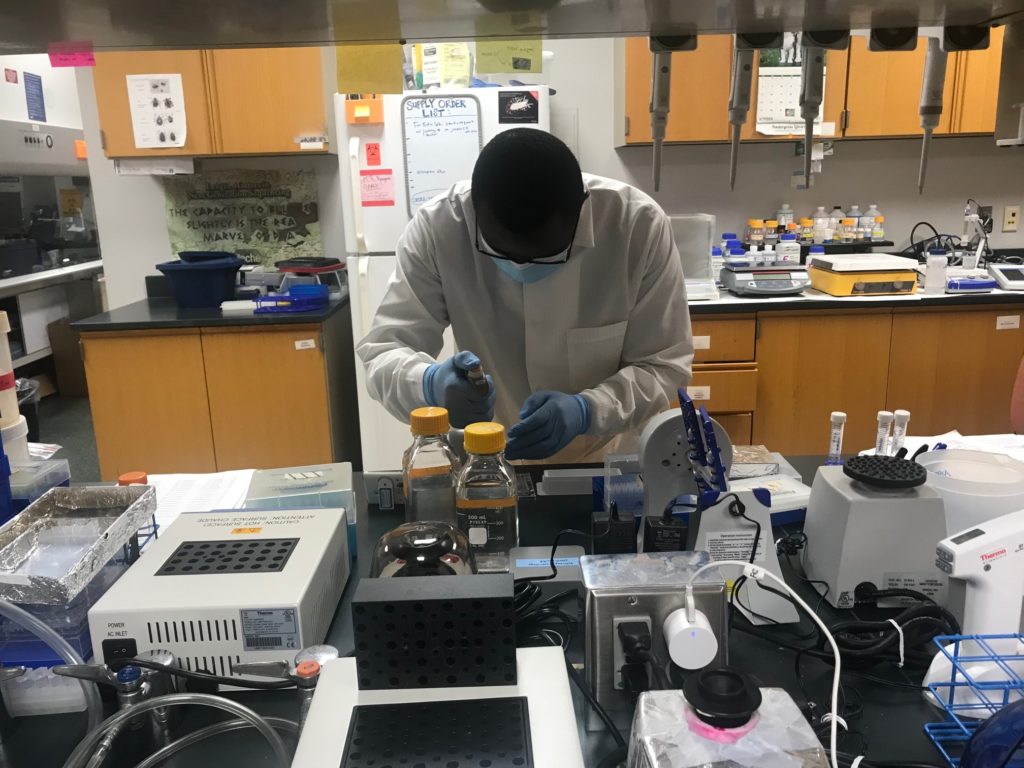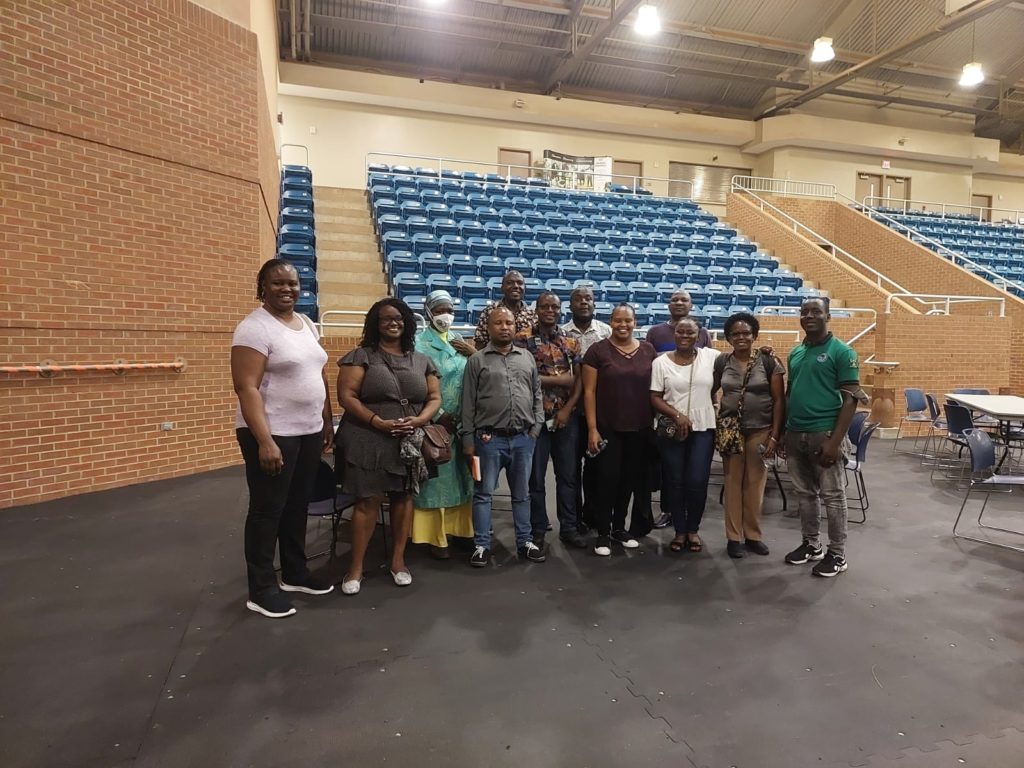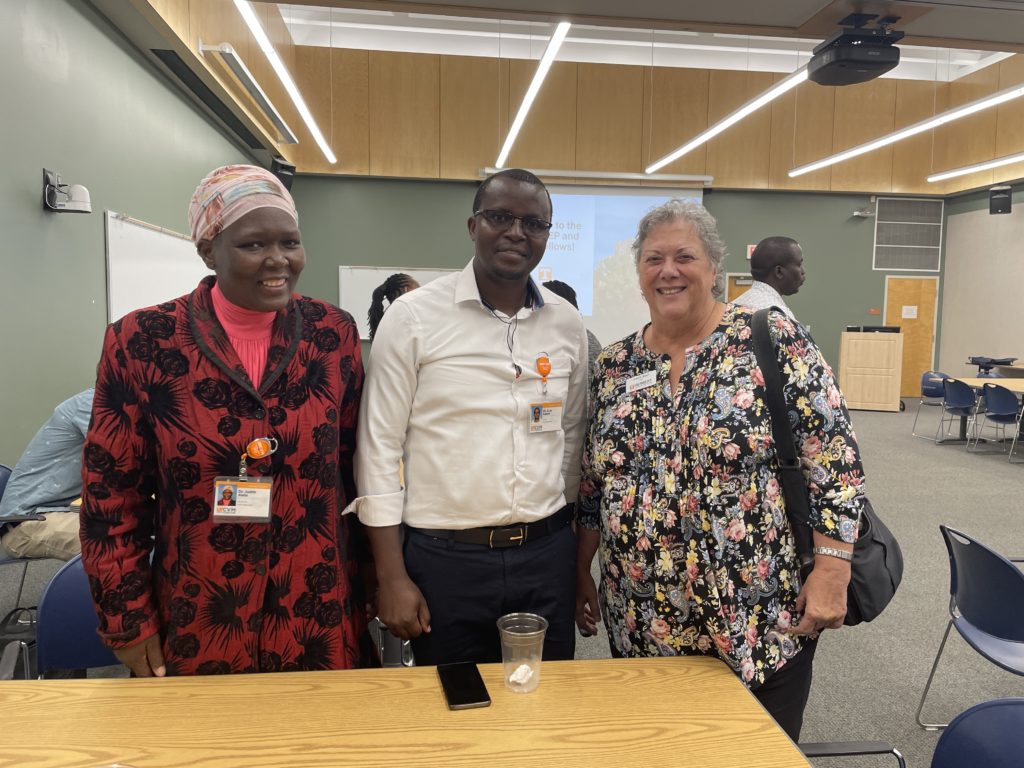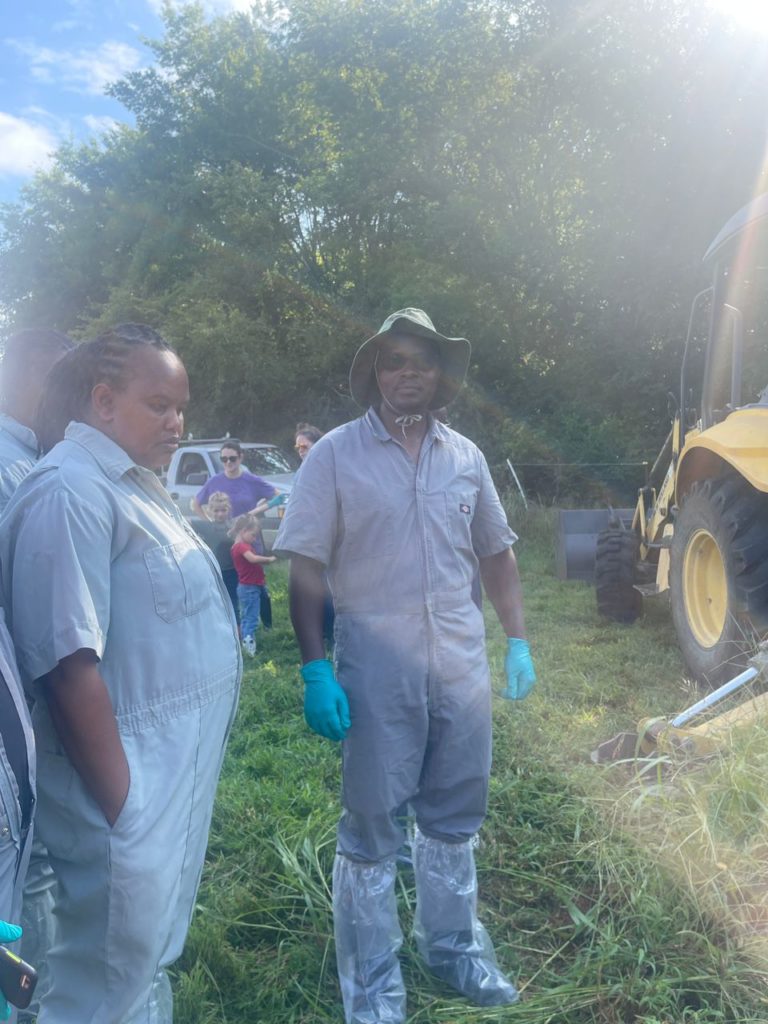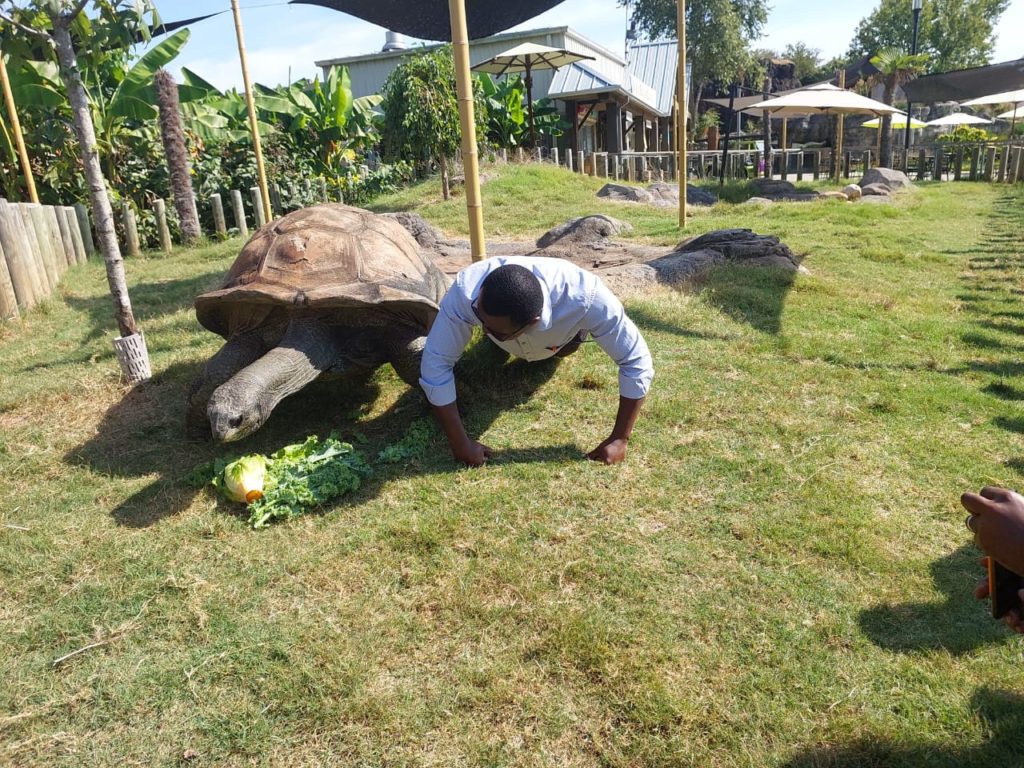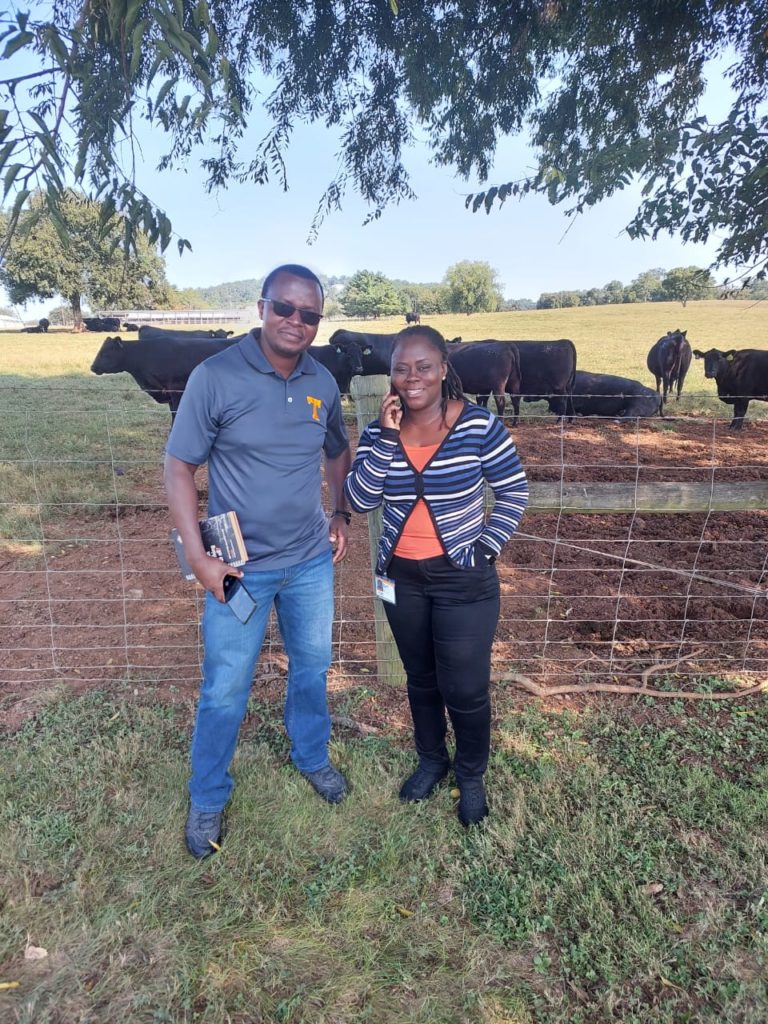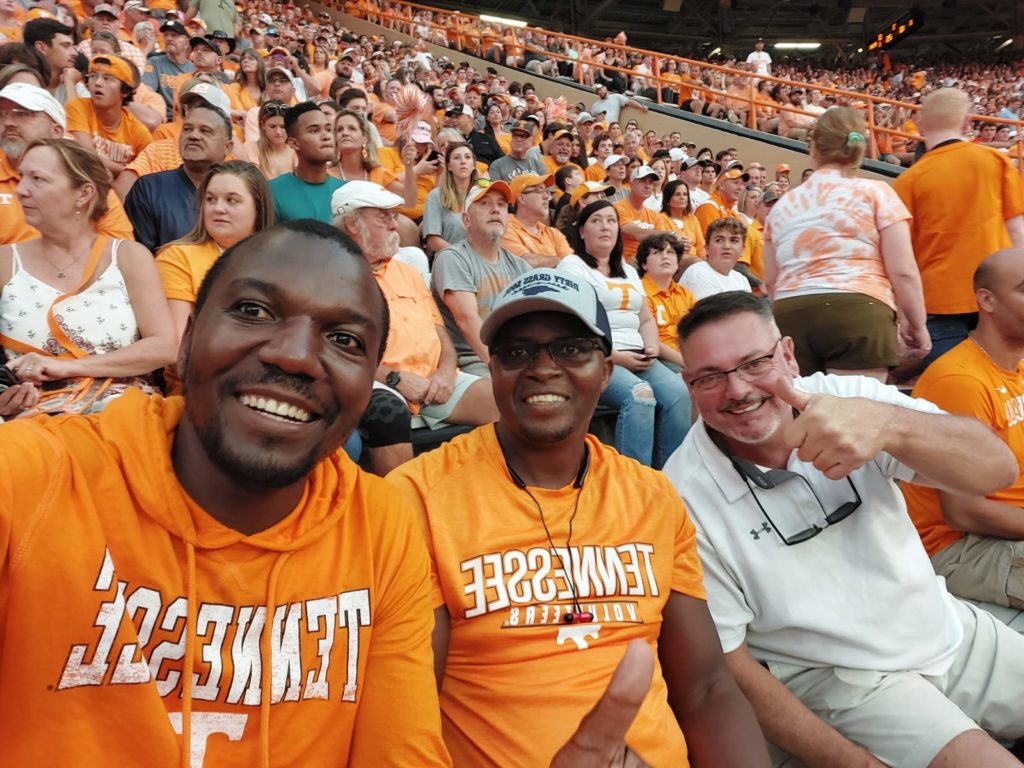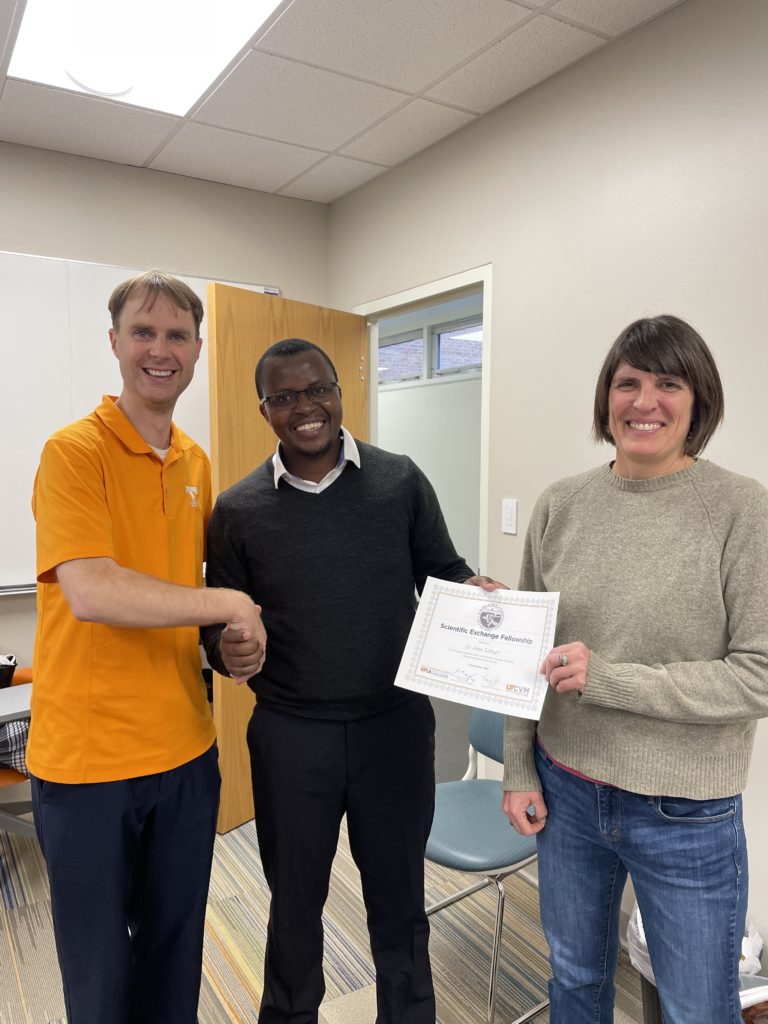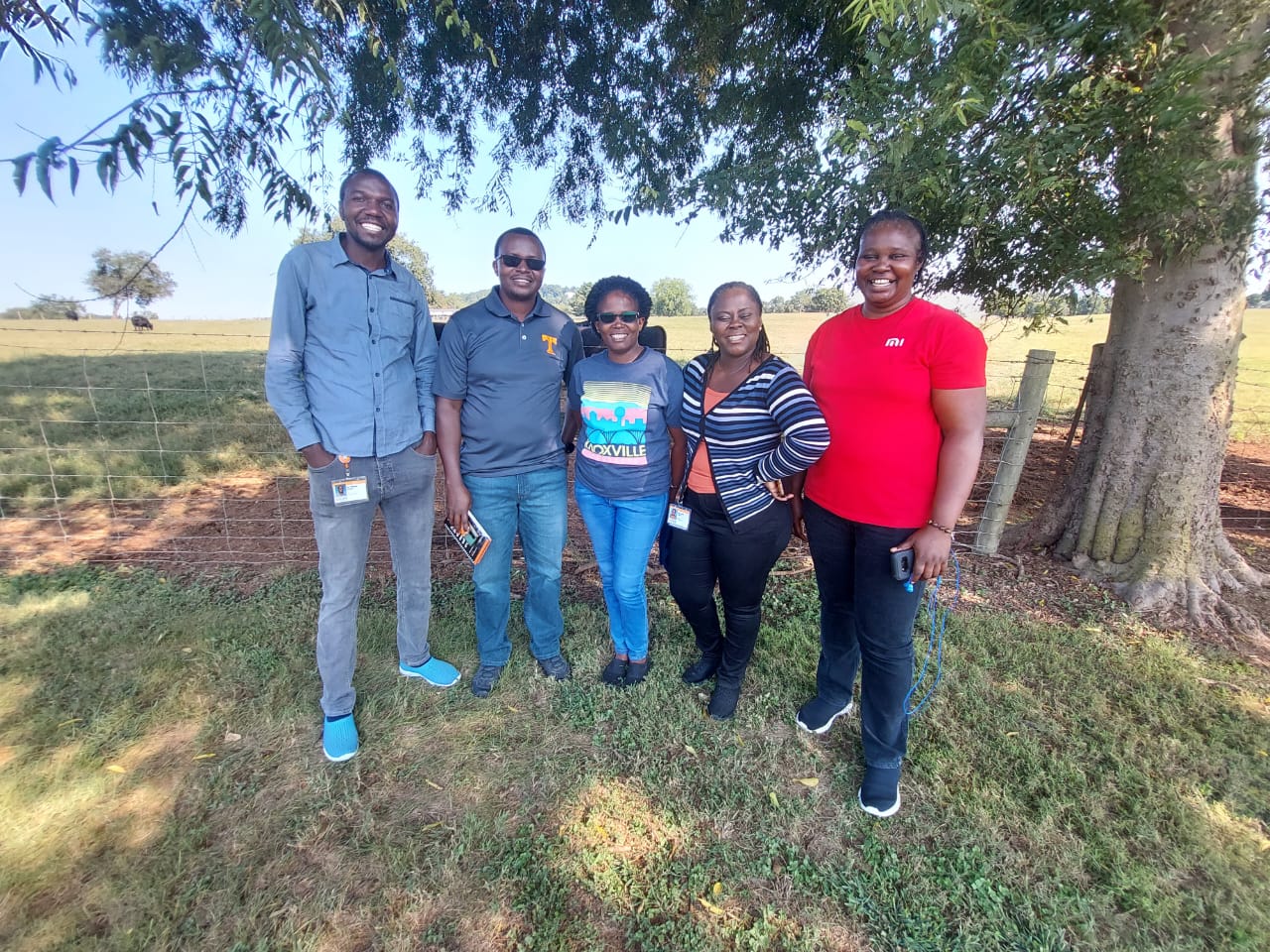
By Nadia Tippett
From August to December 2022, the University of Tennessee Institute of Agriculture hosted nine Faculty Exchange Program (FEP) and five Scientific Exchange Program (SEP) fellows from four African countries. These programs are funded through the Foreign Agriculture Service (FAS) at the United States Department of Agriculture (USDA), and they focus on veterinary teacher pedagogy and animal health governance. Marcy Souza, professor and associate dean for outreach and global engagement at UTIA CVM, served as the project lead for both programs. The visiting SEP fellows were all from Kenya, and the FEP fellows were from Ghana, Kenya, Tanzania, and Uganda. They were matched with faculty members from three different UT colleges for mentorship for the duration of their programs. Learn more about each fellow and their mentor throughout this #FacultyExchangeFriday blog series.
Alex Sabuni is a trained veterinarian who serves as the head of technical services for the Kenya Veterinary Vaccines Production Institute. Learn more about his experience as a SEP Fellow below.
Q: What interested you about this program?
First and foremost, I was interested in traveling to the United States and learning about systems that were different from what I was used to. I was particularly attracted to issues of governance, trade and microbial systems. When I learned about the program, I was attending a training in Kampala on OneHealth and pandemic preparedness. I was excited for the chance to learn something new, especially after being in the clinician field for so long. All of this encouraged me to apply.
Q: What were some highlights of the program for you?
The laboratory and researchers in the lab were one of my favorite parts of the trip. My lab colleagues matched my personality well and were always so warm and welcoming. It was also very well equipped; the technology within was very interesting. Sometimes I would visit the lab even when not working just to see the people and watch what was happening.
The program itself was also fantastic. The length of the program was the perfect amount of time for fellows to settle in and learn without the pressure of time constraints. It also provided a break from daily tasks back home so that we could focus on learning new skills. There was a good balance of activities with the right amount of variety.
Q: What are you next steps following your completion of this fellowship?
I plan to continue working on the project I had here. I am collecting more samples from Kenyan wildlife for research. I am working on diagnosing the same disease but amongst different species of animals.
Q: Why do you view exchange programs like this one as being important?
These programs really are a blessing. They allow people to have a completely different experience from what they are used to in a totally new environment. It allows you to take a break from work to stop and think about research. I have often worked in environments that create strong pressure to learn everything quickly. However, lab work requires time to advance. This opportunity allows time for people to be more immersed in lab work and harness new skills in a supportive environment. Now that I am more comfortable with testing and lab work, I can bring these skills back home with me and have a better understanding of the process.
Q: What was your favorite part about being at UT and in Knoxville, TN?
I was happy with the trip and Tennessee overall. Knoxville is a very friendly, very safe place. I’ve managed to meet the state vet and visit state offices in Nashville, the health department, and the veterinary laboratories. I loved visiting Market Square and meeting people there. Discussing production practices and differences in culture was very interesting. The free public transportation was also pleasant. I would love for my daughters to come to school here.
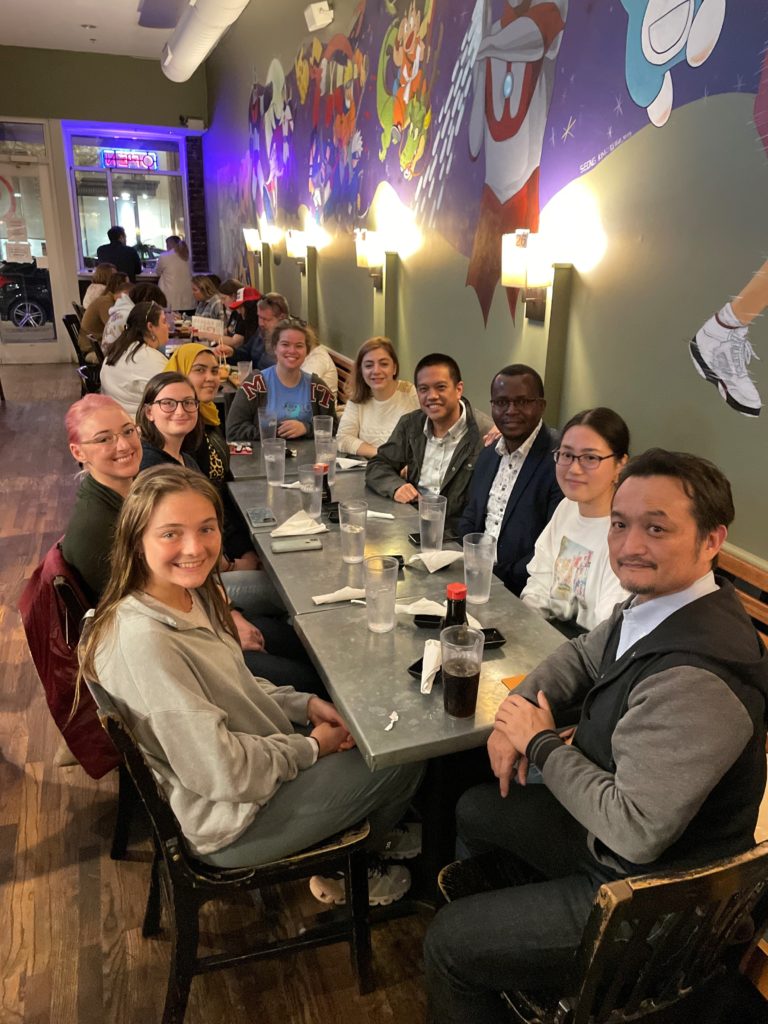
Sabuni was mentored by Shigetoshi Eda, a professor for the Department of Forestry, Wildlife, and Fisheries. He is also co-chair of the UT Chronic Wasting Disease Working Group, associate director of the Center for Wildlife Health, adjunct associate professor at the Department of Microbiology, and affiliate faculty at the National Institute for Mathematical & Biological Synthesis. His work focuses on teaching wildlife health and researching infectious diseases, immunology, epidemiology, mathematical modeling and on-site diagnosis.
Q: What interested you in participating in this program?
Previously, funding from the USDA Borlaug program allowed me to host international scholars from Ukraine and Kazakhstan. I had also collaborated with the Smith Center before about visiting Kazakhstan. These programs were a great opportunity for me to learn about what was going on in other countries on a cultural and agricultural level. I was also able to form connections with international scholars throughout the exchange which sparked an interest in participating again with a new scholar. When notified about Alex, I was happy to take part again.
Q: What were some highlights of the program for you?
Getting to exchange knowledge and learn more about agriculture in other areas has been very beneficial. I really enjoy working with international scholars because it is very helpful to understand other cultures.
Q: What did you learn from interacting with your mentee?
I had the chance to get to know Alex’s personality and about his own experiences compared to mine. He fits in well with us in the lab. We are currently working on how to use the data from his research here for future projects and research. I look forward to collaborating more in the future and visiting him.
Q: What kind of impacts do you think these exchange programs have?
The most important thing these programs do is allow us to learn about the situation and needs of other countries. We discover what animals are important geographically and the level of needs for each species. We also connect with experts in those resource-limited countries for designing diagnostic tests for data collection. We can tweak this information according to the needs of other countries as well.
